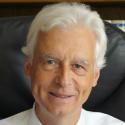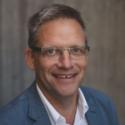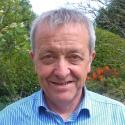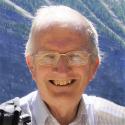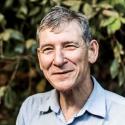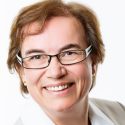2022 Scientists Network
- Image
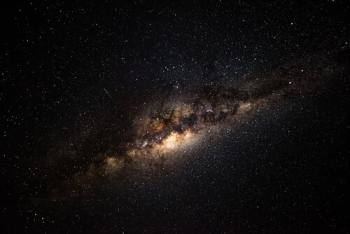
The European Science Network is committed to two main purposes: (1) Increase the praise of God the Creator-Saviour through what humans study and know in His creation (Col 1:16) and (2) Put scientific findings in the context of His Word so that what we know about His creation will not obfuscate our knowledge of Himself (2 Cor 10:5).
In order to achieve its purposes, the European Science Network is geared to serve two kinds of audiences: (1) Scientists and Christians interested in science will obtain the knowledge, language, and courage to do science and speak about science within the framework of a Bible-informed Christian understanding of the cosmos. (2) Christians of all backgrounds will be helped to understand and interact with scientific findings and claims in a way that is truly apologetic, integrating scientific facts into the Christian worldview in an affirmative, active way rather than only defensively and reactively. At the same time, the demarcation lines will be demonstrated between scientific facts and their interpretation by naturalistic vs. Christian worldviews. We do not shy away from sensitive subjects like the evolution debate and ethical implications, engaging in constructive, respectful discussions.
Applicants should be involved in full-time scientific work or have a strong interest and background in the integration of science and Christianity. This Network will be led by Alexander Fink, Director of the Institute for Faith and Science, and Peter Imming, Professor of Pharmaceutical Chemistry in Germany.
Network Leadership
Network Speakers
Lars Dahle is a theologian, educator, preacher, and apologist. Having a long previous experience in various academic leadership roles, he now works as Professor in Systematic Theology (with a speciality in Christian Apologetics) at NLA University… Read more
Alistair Donald is a full-time Chaplain to Heriot-Watt University in Edinburgh, Scotland. He is a graduate of St Andrews University, and he then studied in Wales for a PhD in environmental science. Working for what is now the Environment Agency, he published research on acid rain and water… Read more
Alexander Fink is Director of the Institute for Faith and Science (Institut für Glaube und Wissenschaft) in Marburg, Germany (www.iguw.de). He studied physics at Bayreuth and St. Andrews (UK) universities and received his PhD at the Institute for Biophysics at… Read more
Peter Imming received degrees in pharmacy and chemistry and a PhD and venia legendi in pharmaceutical chemistry from a German university. He has been involved in drug chemistry teaching and research in Germany, the UK, China, Ethiopia and other countries. Until retirement in 2025, he was head of… Read more
Andy McIntosh holds an Emeritus chair in Thermodynamics at the University of Leeds and is also an adjunct professor of Engineering at Liberty University in Virginia. He has had a long scientific research career concerning mathematics, combustion and aeronautics, both in academia and in a… Read more
Tony Rinaudo is known as “The Forest Maker.” His pioneering work on Farmer Managed Natural Regeneration (FMNR) since 1983 has revived millions of hectares from desolate dry ground to thriving arable land across more than twenty countries in Africa. This rehabilitation brings with it increased… Read more
Doris Vollmer studied physics at the University of Bielefeld, the ETH Zurich (Switzerland) and the University of Utrecht (The Netherlands). She completed her PhD at the University of Basel in physical chemistry. For her habilitation (2000) she moved to Mainz and joined the group of Prof. Manfred… Read more
Network Programme
Sunday, 22 May
Suppose climate change is true and caused by humans. Climate change often leads to intense discussions. What are its causes? Can we accurately model climate change? What is our responsibility as Christians to handle this problem? This session will discuss the role of burning fossil fuels, the idea of tipping points in scientific models, and the possible consequences of climate change for our life on earth.
Few doubt that there have been and continue to be changes in climatic conditions, but it is very important to consider the causes of such climate change. With data that indicates that the current warming is not isolated in history, what causes climate warming? In this session, we will look at promising lines of investigation conducted by a number of researchers and examine carefully some of the climate modelling of the Intergovernmental Panel on Climate Change (IPCC). How much evidence do we have that humanity is impacting the world climate?
Monday, 23 May
Climate change, land degradation, and species loss are impacting millions of the world’s poorest people, contributing to hunger, poverty, migration, and conflict. Caring for creation and healing environmental wounds must go hand in hand with caring for those whose livelihoods depend on the natural resources around them. The two are inseparable, and in fact, the only way healing and restoration of any significance is going to happen is with and through the people who live on the land. This session will discuss current challenges facing the world's farmers and ways we can partner with them to overcome these challenges in God's name.
A consensus has emerged that the only ethical response to today's widespread concern about the effects of climate change is for the world to move to net zero emissions of CO2 as quickly as possible, and for developed countries to make huge cash transfers to developing countries. Yet in the recent past, some well-intentioned policies which enjoyed consensus when first proposed have resulted in unforeseen negative consequences for the environment. Some of the measures now being proposed risk exacerbating rather than ameliorating poverty in both developing and developed countries. Responsible Christian stewardship may require re-thinking these issues.
Tuesday, 24 May
Media coverage has helped create global awareness of Farmer Managed Natural Regeneration and the importance of environmental restoration to the poor, the environment, and climate. What is our duty as Christians in caring for creation and stewarding well the earth we have been given? How can we best communicate about the church's role in environmental restoration? This is a joint session between the Media Communicators and Scientists Networks.
Scientific research is more and more supposed to serve one or more of the 17 Sustainable Development Goals (SDGs). The SDGs, while not formulated under particularly Christian auspices, can be traced back to God's command that humans exert good stewardship of creation. Using examples from the speaker's own drug and bioeconomics related research and teaching, this talk will show how Christians can tailor their work so that it serves one or more SDGs, concomitantly staying true to the Lord's stipulations. This constructive - rather than critical - approach will lend credibility to the Christian worldview of creation.
Wednesday, 25 May
Scientists collect data and try to make sense of them. Often conflicting theories arise, as worldview presuppositions and other factors enter into the interpretations. How can we compare different approaches and decide on the best explanation? This session will summarise and compare the different positions on how to think about scientific evidence within a Christian worldview.
How do the facts and ethics related to climate change impact how we talk and interact with others? Can we use climate change as a connection point to persuasively communicate the gospel? This panel discussion will reflect on how to use the material learned this year in our teaching, research, and communication with colleagues and students.

